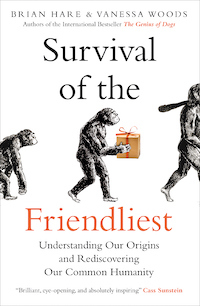Public ideas
The hedgehog and the fox make a seasonal re-appearance
Perhaps, every ten years or so, we should re-read Isaiah Berlin’s essay The Hedgehog and the Fox.
When he wrote it in 1953 the memories of the wars of 1914 to 1945 and the Holocaust were still fresh in people’s memory. The grand idea of National Socialism had ended in horror, and the world, including those on the left who had been understandably attracted to the grand idea of communism, were coming to see how it had played out in the Soviet Union. In this Cold War drama there developed a dangerous standoff between two sides, both fully convinced of the righteousness of their own ideology.
Damon Linker of the Center for Critical Writing at the University of Pennsylvania, summarizes Berlin’s public ideas in a short contribution on the Persuasion site: Isaiah Berlin and the tragedy of pluralism. He warns us to beware of those who promote one big unifying idea – often an ism – framed in a Manichean “you’re with us or against us” choice. These are Berlin’s hedgehogs.
We would be better advised to embrace the view of the fox. Quoting one of Berlin’s scholars, he writes that “foxes see the complications of living in a world of many truths and are less quick to judge. … They do not deny the notion of truth; they simply see that we cannot always reconcile all things that are truly good and thus must make compromises among them”. The “tragedy” however, is that the fox’s view of society and politics “denies the possibility of any ultimate solution to the deepest problems”. That’s the frustration faced by those who embrace liberal pluralism.
Linker also mentions another essay by Berlin, his 1958 work Two concepts of liberty. Negative liberty, which Berlin considered to be the most important, is freedom from imposed constraints, such as censorship of writing, restrictions on association, and restrictions on movement. Once liberty is established (“freedom from”) people can exercise positive liberty. He explains the relationship between the two in terms of the powers we assign to government:
The effort to make positive liberty available to all citizens tends to require a vast expansion of government power. If that expansion is not to grow to tyrannical proportions, it must be limited by a prior commitment to a certain baseline of negative liberty.
Perhaps these are ground rules we take for granted in a liberal democracy like Australia. But they are constantly put to the test. The contest of political ideas can degenerate into destructive polarization, with no respect for the complexities of public policy. We are presently grappling with the positive liberty of freedom of expression in social media, unconstrained by norms of truth or justice. There are dogmatists on the right, spreading the grand idea of “small government”, while there are censors on the left trying to limit discussion of “race”, “gender” and other ideas to do with power, as if these are settled in indisputable grand narratives.
We should be grateful for governments that ignored the nostrums of neoliberalism
The post above on Isaiah’s hedgehog and fox is about the danger of the all-encompassing big idea.
Dani Rodrik, writing on the IMF’s Finance and Development site, reviews the big idea of neoliberalism: Addressing challenges of a new era: against rule-of-thumb economics. He writes:
The original sin of the neoliberal paradigm was the belief in a few simple, universal rules of thumb that could be applied everywhere. If neoliberalism was economics in action, it was bad economics that was on display.
He acknowledges that in the neoliberal era there were positive developments, such as a dramatic reduction in extreme poverty, but most economic success, including the impressive performance of now prosperous Asian economies, was due to governments of those countries taking a pragmatic and flexible approach to economic policy, using industry policies, capital controls, and public investment – all proscribed by the dictates of neoliberalism.
There are two serious global problems – responding to climate change and halting the erosion of the middle class – that cannot be solved by adhering to the simplistic rules of neoliberalism. Their solutions will draw on a pragmatic approach to economic policy, while keeping a focus on improving productivity, particularly in the services sectors.
Survival of the friendliest
Misinterpretation of Darwin’s survival of the fittest has contributed to much harm, from National Socialism through to neoliberalism.

“Fit” in Darwin’s sense does not refer to people’s muscular capacity, physical endurance, sociopathy or capacity for intellectual dominance. Rather it is about whether behaviour is fit for purpose, that purpose being survival and reproduction.
Countering that impression have been works revealing the benefits of cooperation, most notably Robert Axelrod’s 1984 work The Evolution of Cooperation. Groups that cooperate among themselves, in avoiding the transaction costs of selfishness, develop the resources to strengthen their defences against other groups, become more “fit” in Darwin’s sense.
Writing on his own website (conspicououscognition.com), Dan Williams reviews a book Survival of the friendliest by Brian Hare and Vanessa Woods, both well credentialed to write on the subject, as is Williams himself. Hare and Woods go one step further than Axelrod, in developing a hypothesis, the idea of a natural process of “self-domestication” about how social cooperation comes about.
Dan Williams’ review summarizes and explains the work – agreeing with its basic premise about what constitutes fitness, but pointing out what he sees as contradictions in the work, and going into much more complex models of social cooperation. All a useful contribution to our understanding of how social cooperation develops and can be sustained.
Thanks to Nicholas Gruen for alerting us to this work.